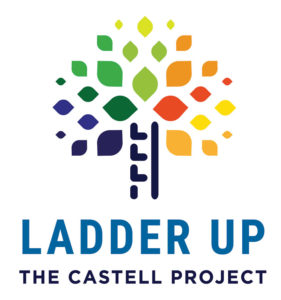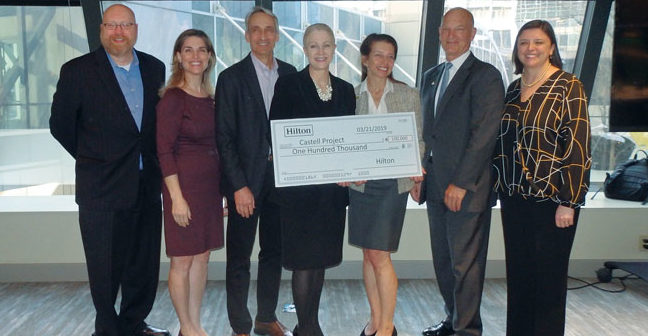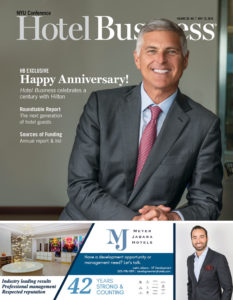ATLANTA—Gender diversity in the hospitality industry’s corporate culture is limited. Looking to change that is Castell Project Inc., a nonprofit organization aimed at advancing the careers of female leaders in hospitality.
With its new “Ladder Up” capital campaign, the organization plans to fund participation for women in Castell leadership development programs at all levels; drive awareness of gender diversity and engagement in the hospitality industry; and deliver benchmark research, including Castell Project’s annual report.
“This is the moment when the very slow gains of the last 40 years become exponential progress because of the confluence of a very strong female talent pipeline, critical mass of women at mid-management levels, senior executive men who want their daughters to have opportunity, and public interest in women’s progress,” said Peggy Berg, president, Castell Project Inc.
Castell Project, Berg said, is about accelerating the pace at which the industry can adapt its culture and develop its female talent. Adding even more force is its lead sponsor, Hilton, with a $100,000 donation kicking off Castell’s $1-million goal.
“The Castell Project is dedicated to accelerating the careers of women in hospitality through a yearlong leadership program—something that many hotel companies lack the resources internally to create on their own,” said Leslie Pchola, SVP of operations, Hilton, who is also on Castell Project’s board of advisors.
Castell’s sponsors will be recognized across mediums, including website and campaign materials promotion.
“Hilton’s sponsorship is a tremendous boost to our credibility as a nonprofit just now in its third year of operation. Hilton has sent several women through our programs. We are proud of the results and honored by their support,” Berg said.
 The campaign will also allow Castell to work with a wider range of companies, helping women in the industry rise up at an even faster rate.
The campaign will also allow Castell to work with a wider range of companies, helping women in the industry rise up at an even faster rate.
“It is not the only industry that is short talent, and competition is getting stronger,” Berg said. “Competent leadership recognizes this, and also knows that companies with gender-diverse leadership are more profitable. This means there is strong interest in engaging women. But, interest is far ahead of the reality of corporate culture.”
According to Berg, while women are underrepresented in hotel ownership, they control 51% of U.S. assets, about $14 trillion, a potentially major opportunity for the hotel industry.
“It’s not just the hospitality industry that is out of balance with regard to women in leadership; however, our industry is uniquely reliant on women,” she said. “In the hospitality industry, 58.2% of employees are female and 67% of hospitality students are female. Travel decision-makers, our customers, also skew about 80% female. Companies that adapt to the changing marketplace will beat the competition.”
These stats are significant for both Castell and Hilton, as female leadership is not only important in bolstering internal teams, but everyone they do business with.
“We need to have leaders who represent not only our overall team member population, but the guests we interact with daily,” Pchola said. “As a business of people serving people, our success depends on finding the best ideas from everywhere, and having women in more leadership positions offers a new, diverse perspective.”
According to Berg, to promote these perspectives, Castell Project works directly with women in certain areas where gender-specific training makes a difference. Additionally, Castell works with companies, highlighting corporate culture and female participation.
“The most successful hotel companies have been grooming women for leadership for years now and, as a result, they now have a significant competitive advantage in the market for talent,” she said. “Today, talent is hard to attract. In this competitive field, there are relatively few women, and more companies have realized the financial and cultural benefits of gender-balanced leadership. That means that female talent will become even more difficult to source. And, talented women, reasonably enough, tend to select employers who have already demonstrated stable career opportunities and an open culture for senior executive women.”
Castell’s gender-specific training addresses a workplace challenge, one that Berg says is prevalent—but not impossible—to tackle.
“The relatively easy part to address is that there are specific skills that women learn differently than men, and it is a challenge for women to acquire these skills in organizations that only effectively train men,” Berg said.
Castell trains in these areas for those very reasons and encourages companies to pay that same mind to female talent.
But changing corporate culture is a complicated process, one that requires a well-focused business plan and filters down from upper management.
“The more difficult challenge is corporate culture,” Berg said. “Companies like Hilton and Marriott have been working on this challenge for quite a few years and are finding success. So, there is a defined path, but it requires leadership, planning and execution, like any significant business initiative.”
This is where Castell comes in, acting as a resource for these brands to outline a path and develop successful strategies with measured results. Castell Project’s annual report, “Women in Hospitality Industry Leadership,” enables companies to track progress.
Additionally, Castell presents at universities to promote female leadership, and its WSH List promotes female speakers at industry conferences.
“We understand access to opportunity can be a huge barrier for women in the workplace. We’re committed to providing more opportunities for women to meet, network and foster mentoring relationships,” Pchola said.
Hilton organizes monthly leadership luncheons, hosts diversity summits and creates mentorship programs at the property level; at its corporate office, the company offers an Executive Committee Networking Program to develop mentee relationships with high-potential female leaders. Hilton has also developed a Women’s Team Member Resource Group and a Leadership Excellence Program for its female leaders.
“Surveys consistently show that this generation of women is more committed to careers than this generation of men—motivation is not the problem,” Berg said. HB


